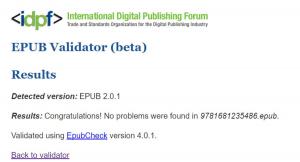Dialogic Formations
Investigations into the Origins and Development of the Dialogical Self
Nonfiction, Health & Well Being, Psychology, Personality, Reference & Language, Education & Teaching, Social & Cultural Studies, Social Science| Author: | ISBN: | 9781623960391 | |
| Publisher: | Information Age Publishing | Publication: | January 1, 2013 |
| Imprint: | Information Age Publishing | Language: | English |
| Author: | |
| ISBN: | 9781623960391 |
| Publisher: | Information Age Publishing |
| Publication: | January 1, 2013 |
| Imprint: | Information Age Publishing |
| Language: | English |
This volume understands itself as an invitation to follow a fundamental shift in perspective, away from the selfcontained ‘I’ of Western conventions, and towards a relational self, where development and change are contingent on otherness. In the framework of ‘Dialogical Self Theory’ (Hermans & HermansKonopka, 2010; Hermans & Gieser, 2012), it is precisely the forms of interaction and exchange with others and with the world that determine the course of the self’s development. The volume hence addresses dialogical processes in human interaction from a psychological perspective, bringing together previously separate theoretical traditions about the ‘self’ and about ‘dialogue’ within the innovative framework of Dialogical Self Theory. The book is devoted to developmental questions, and so broaches one of the more difficult and challenging topics for models of a pluralist self: the question of how the dynamics of multiplicity emerge and change over time. This question is explored by addressing ontogenetic questions, directed at the emergence of the dialogical self in early infancy, as well as microgenetic questions, addressed to later developmental dynamics in adulthood. Additionally, development and change in a range of culturespecific settings and practices is also examined, including the practices of mothering, of migration and crosscultural assimilation, and of ‘doing psychotherapy’.
This volume understands itself as an invitation to follow a fundamental shift in perspective, away from the selfcontained ‘I’ of Western conventions, and towards a relational self, where development and change are contingent on otherness. In the framework of ‘Dialogical Self Theory’ (Hermans & HermansKonopka, 2010; Hermans & Gieser, 2012), it is precisely the forms of interaction and exchange with others and with the world that determine the course of the self’s development. The volume hence addresses dialogical processes in human interaction from a psychological perspective, bringing together previously separate theoretical traditions about the ‘self’ and about ‘dialogue’ within the innovative framework of Dialogical Self Theory. The book is devoted to developmental questions, and so broaches one of the more difficult and challenging topics for models of a pluralist self: the question of how the dynamics of multiplicity emerge and change over time. This question is explored by addressing ontogenetic questions, directed at the emergence of the dialogical self in early infancy, as well as microgenetic questions, addressed to later developmental dynamics in adulthood. Additionally, development and change in a range of culturespecific settings and practices is also examined, including the practices of mothering, of migration and crosscultural assimilation, and of ‘doing psychotherapy’.















